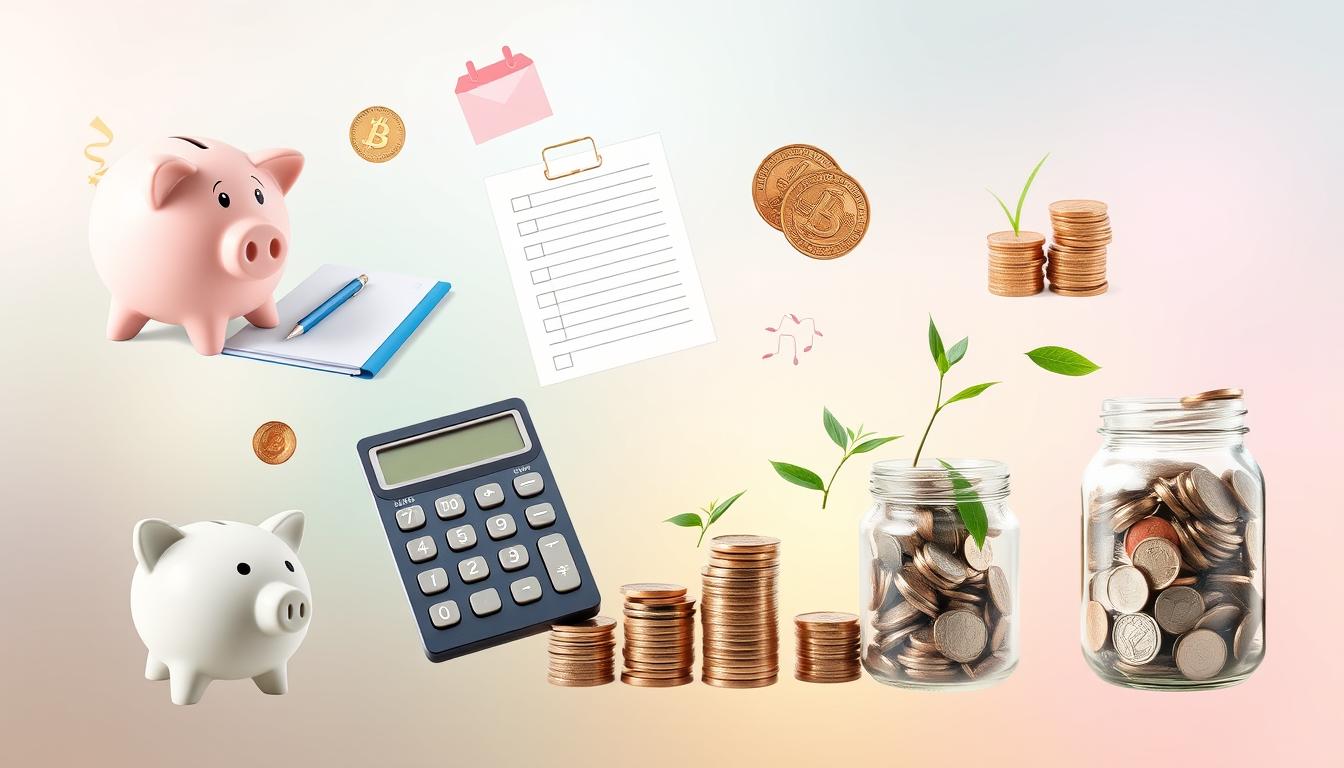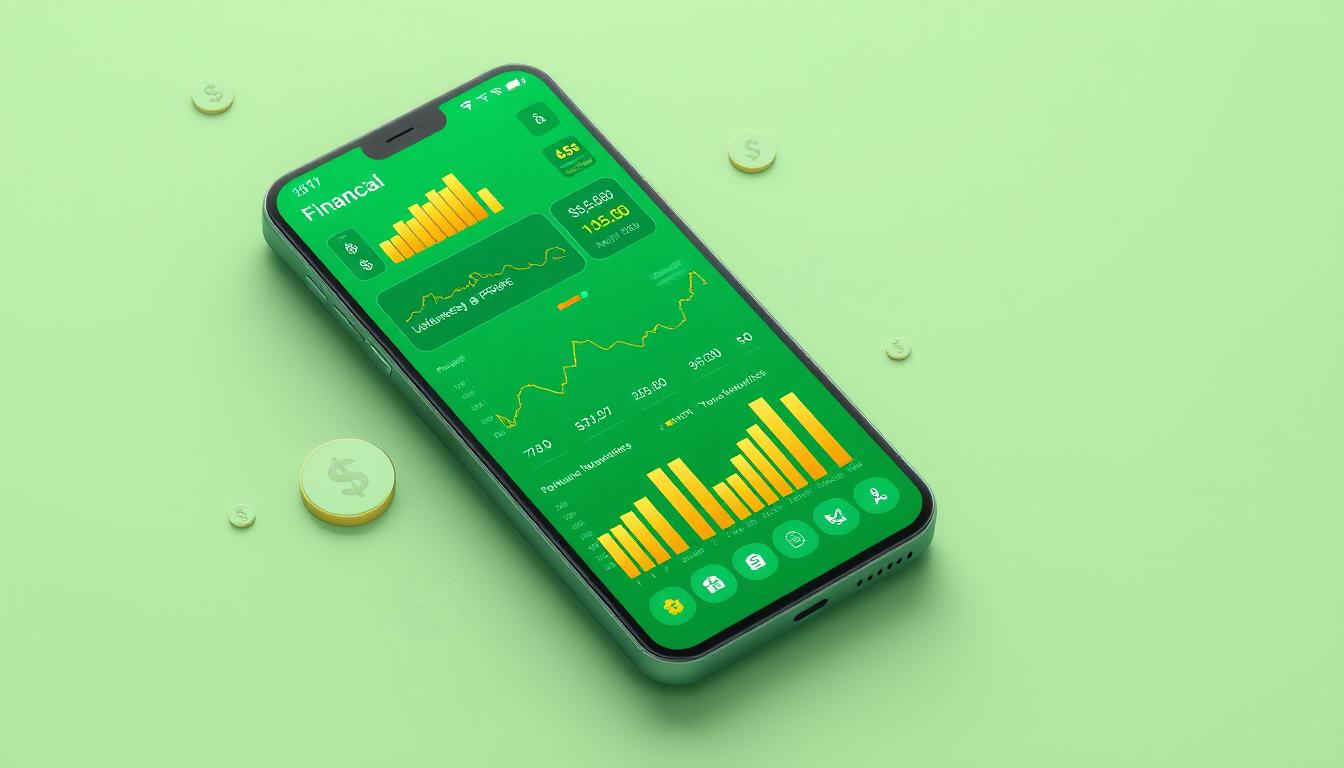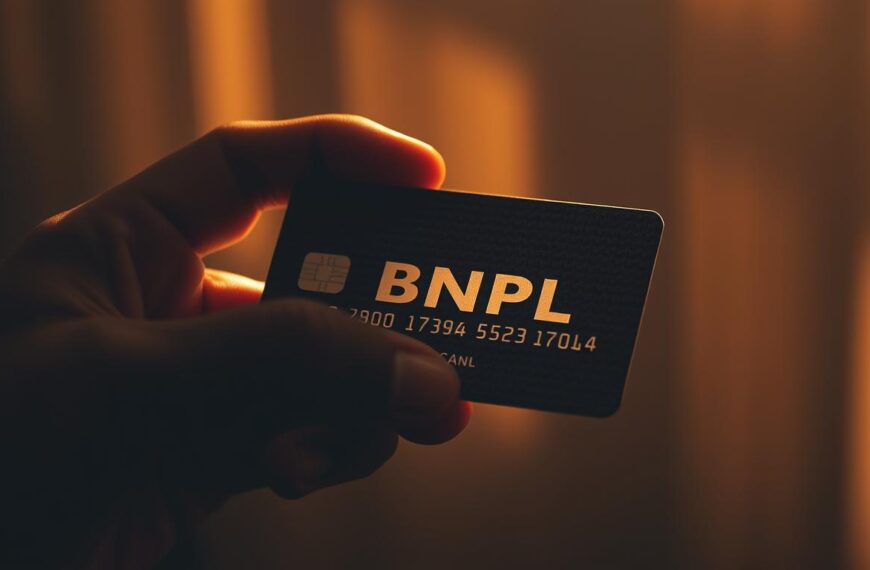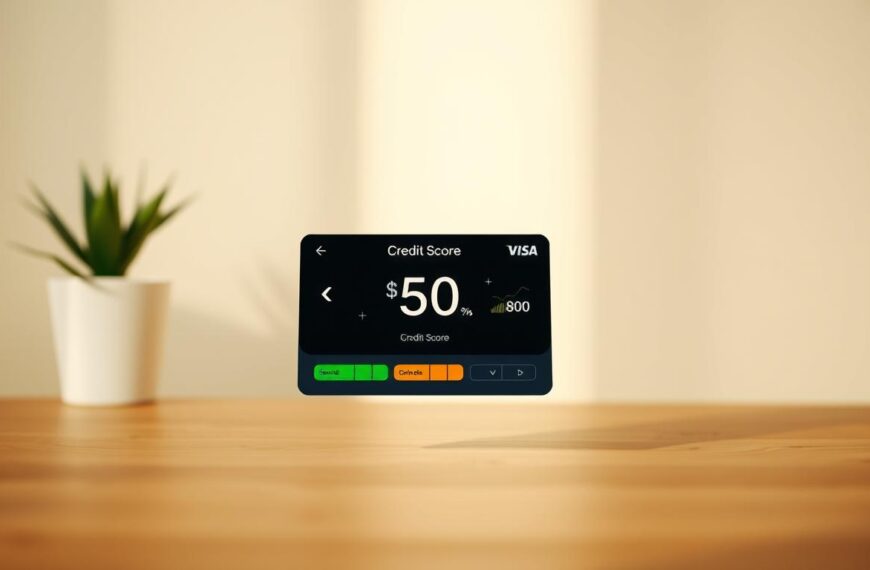Managing personal finances can be tricky. But with the best budgeting tips, you can change your money situation. Good financial planning helps you reach your goals and secure your future1.
Digital tools have changed how we handle money. Apps like Emma, Plum, and Snoop offer new ways to track spending and boost savings1. These platforms have free basic versions and paid subscriptions with advanced features.
To plan well, you need to know your spending habits. Mobile banking tools can help you set alerts for transactions. This way, you can manage your expenses better2.
By watching your spending closely, you’ll find ways to save money quickly. You can build a stronger money plan too. Every pound matters when you’re trying to improve your finances.
Smart budgeting isn’t about limiting yourself. It’s about making wise choices for your long-term money goals. With the right approach, you can change how you deal with money.
Essential Steps to Create Your First Budget
Creating a budget can transform your financial health. It’s simpler than you might think. With a few hours of work, you can gain remarkable control over your money.
Start by gathering your financial documents. Collect recent bank statements, pay slips, and credit card bills. This gives you a clear picture of your finances.
Calculating Your Monthly Income
Determine your monthly income after taxes. Include all sources like salary, freelance earnings, and investment dividends. For irregular incomes, use the lowest monthly amount from the past year.
- Regular salary
- Freelance earnings
- Investment dividends
- Government benefits
Tracking Essential Expenses
Understanding your essential expenses is crucial. These typically include rent, utility bills, groceries, and transportation costs.
- Rent or mortgage
- Utility bills
- Groceries
- Transportation costs
The 50/30/20 rule suggests splitting your income: 50% for essentials, 30% for wants, and 20% for savings. Pro tip: Track all spending for a week to uncover your true patterns3.
“Budgeting is not about restricting yourself. It’s about making the things that excite you possible.” – Unknown
Review your budget every three to six months. This helps you stay on track and adapt to changing financial circumstances4.
Best Budgeting Tips for Quick Savings
Clever budgeting can revolutionise your finances. Simple techniques help build a solid savings plan. Smart money-saving hacks can boost your financial health significantly5.
Try these fun savings challenges:
- The 1p Savings Challenge: Start with 1 pence and increase your daily savings bit by bit6.
- No-Spend Weekends: Enjoy free activities and skip unnecessary spending6.
- Equal Save Method: Save the same amount before non-essential purchases to improve financial discipline5.
The 50/20/30 budgeting rule offers a structured approach to money management. It divides income into essentials (50%), non-essentials (30%), and savings (20%)5.
Following a systematic budgeting approach could double your savings5. This method helps you allocate funds wisely and consistently.
“Saving money is not about being cheap, it’s about being smart with your resources.”
Digital tools can supercharge your budgeting efforts. Budgeting apps and tracking software improve expense tracking by 40%5. They also help categorise spending, potentially cutting non-essential costs by 20-30%.
Practical money-saving tricks include selling unused items online. Monitor your spending via banking apps. Limit eating out to save more6.
Remember, small, consistent changes can lead to big financial gains. Every penny saved counts towards a brighter financial future.
Smart Ways to Reduce Monthly Bills
Cutting down on monthly expenses can greatly improve your financial health. Strategic approaches can significantly reduce bills and create more budget flexibility.
Reviewing Utility Providers
Lower utility costs by comparing different service providers. Turning down your thermostat by one degree can save up to £80 yearly on heating.
Households can save energy in several ways:
- Turn off appliances in standby mode to save around £40 annually7
- Use energy-efficient appliances that can cut electricity usage by up to 50%7
- Take shorter 4-minute showers to save £45 per year7
Cutting Fuel and Transport Costs
Transport expenses can quickly drain your budget. Smart driving techniques and proper vehicle maintenance can reduce fuel consumption. Consider carpooling, public transport, or alternative methods to save money.
Managing Insurance Expenses
Take a proactive approach to save on insurance. Consider these strategies:
| Insurance Strategy | Potential Savings |
|---|---|
| Review policies annually | Up to 20% reduction |
| Increase voluntary excess | Lower premium costs |
| Pay annually instead of monthly | Avoid additional interest charges |
Examine your utility providers, transport expenses, and insurance policies carefully. This can effectively reduce monthly bills and boost your financial wellbeing8.
Start using these strategies today. You’ll soon see your savings grow9.
Money-Saving Challenges and Hacks
Spice up your financial journey with creative money-saving challenges and hacks. These strategies can turn budgeting into an engaging game. Watch your savings soar as you embrace these innovative approaches.
Exciting Money-Saving Challenges
Supercharge your finances with these thrilling money-saving challenges:
- The 1p Savings Challenge: Start saving just 1p and increase by a penny each day, potentially saving over £650 in a year1011
- 52-Week Challenge: Save incrementally each week, accumulating £1,378 annually11
- No-Spend Weekend: Cut expenses by engaging in free activities twice a month1011
Creative Financial Hacks
Unlock unexpected savings through clever financial strategies:
- Buy oddly-shaped vegetables at significant discounts10
- Explore police auctions for discounted lost and stolen goods10
- Use cashback websites like Topcashback for online shopping savings10
“Saving money isn’t about restriction, it’s about being smarter with your finances.”
These challenges and hacks can transform your spending approach. Create meaningful savings without feeling deprived. The key is to make saving enjoyable and sustainable.
Pay insurance premiums upfront to save 10%10. Check tax codes carefully to avoid overpaying10. These small steps can lead to significant financial improvements.
Practical Shopping and Spending Strategies
Smart shopping tips can transform your finances and help you save money. It’s about making informed choices that maximise value and minimise unnecessary expenses. Strategic spending goes beyond simple cost-cutting.
Supermarket Savings Techniques
Grocery shopping offers numerous opportunities for savings. Planning meals and creating a shopping list can lead to significant cost reductions. Shoppers can save about 15% on groceries by carefully planning their purchases12.
- Create a meal plan before shopping
- Compare prices between brands
- Purchase generic products instead of name brands
Online Shopping Discounts
Online shopping provides unique chances for securing discounts. Consumers report a 25% decrease in impulse purchases compared to in-store shopping12. Smart strategies can help you maximise savings:
- Search for promo codes before purchasing
- Sign up for retailer newsletters
- Use price comparison websites
Subscription Management
Managing subscriptions is vital for financial health. Many unknowingly spend large sums on unnecessary recurring payments. By cancelling unused subscriptions, households can save nearly £200 annually12.
Automated tools can help identify and manage these expenses13. Regular reviews ensure you’re only paying for services you truly value.
“Small changes in subscription management can lead to substantial financial savings.”
Set a quarterly review to assess and manage subscriptions effectively. This practice helps maintain control over your recurring expenses.
Pro tip: Automating budget tasks can uncover unnecessary monthly subscriptions costing an average of £30 or more13.
Debt Management and Interest Reduction

Managing debt requires smart planning and action. People with money worries can use various methods to lower interest and simplify repayments14.
Key strategies to manage debt include:
- Balance transfer credit cards with interest-free periods
- Debt consolidation loans for potentially lower interest rates
- Prioritising essential debt repayments
The average UK household debt has risen to about £15,000. This makes good debt management vital15.
When looking at balance transfers, check the terms carefully. Make sure you can pay off the balance within the special offer period14.
| Debt Management Strategy | Potential Benefits |
|---|---|
| Balance Transfer | Reduce interest, consolidate payments |
| Debt Consolidation Loan | Lower interest rates, single monthly payment |
*”The longer you wait to address debt struggles, the more challenging resolution becomes”*14.
Proactive steps to reduce interest include:
- Negotiating with creditors
- Creating a comprehensive repayment plan
- Avoiding multiple credit applications
Groups like National Debtline and StepChange offer free help with money troubles14. Using these tips can help you manage debt better.
With the right approach, you can work towards financial stability15. Don’t hesitate to seek help if you need it.
Conclusion
Mastering money management requires dedication and strategic planning. Effective budgeting can transform your finances, helping you achieve goals with confidence1617. Success isn’t about perfection, but consistent effort.
Research shows that developing solid financial habits takes 3-4 months of practice16. Tracking all income and expenses creates a clear picture of your spending patterns16.
Digital budgeting apps now offer streamlined money management solutions. These platforms provide real-time insights, making financial tracking more accessible17.
Regular monthly reviews and an accountability partner can boost your financial discipline17. Your financial journey is unique. Stay adaptable and committed to your goals.
Celebrate small victories along the way. With patience and planning, you’ll move towards a more secure financial future.
FAQ
How quickly can I start saving money with these budgeting tips?
You can start saving right away with these budgeting strategies. Some tips, like the 1p savings challenge, can help you save within days. You could potentially save over £650 in a year with these methods.
Do I need advanced financial knowledge to create a budget?
Creating a budget is straightforward, even for beginners. Start by gathering your financial documents and calculating your total monthly income. Then, track your essential expenses to develop an effective budgeting strategy.
What’s the easiest way to cut down on monthly expenses?
Review your fixed monthly bills like utilities, insurance, and subscriptions. Switch providers, increase voluntary excess on insurance, and cancel unnecessary subscriptions. These simple actions can lead to significant monthly savings.
Can budgeting really help me manage my debt?
Budgeting is indeed a powerful tool for debt management. Use balance transfer credit cards and consolidate debt to reduce interest payments. Create a structured repayment plan to gradually clear your outstanding balances.
How can I save money while shopping?
Try meal planning, buying in bulk, and using online discount codes. Be strategic about subscriptions and use cashback programmes. Shop during sales to save money without feeling deprived.
Are money-saving challenges effective?
Money-saving challenges can be fun and engaging. The 1p savings challenge and no-spend weekends help develop positive financial habits. These strategies build your savings while making the process enjoyable.
What technology can help me with budgeting?
Budgeting apps and open banking features simplify money management. These digital tools track expenses and set savings goals. They provide insights into your spending patterns, making budgeting more accessible.
How often should I review my budget?
Review your budget monthly to track progress and adjust for changes. This ensures you stay on track with your financial goals. Regular reviews help you maintain control over your finances.


















Budgeting isn’t just about cutting costs but about making smarter financial choices and this guide explains it perfectly!